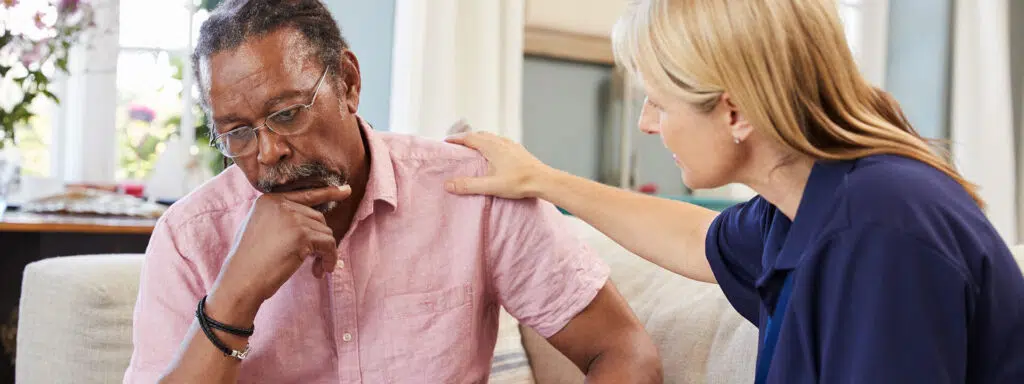Read the latest and greatest from our team
of incredible specialists.

Beach House Recovery Center » Blog » Relapse and the Path to Recovery
Just like asthma and high blood pressure, addiction is a chronic disease. And just like people with controlled asthma and high blood pressure sometimes see their conditions flare, so do people in recovery. In recovering addicts, that flare is called relapse.
Relapse is particularly likely in the first 90 days following a treatment program, as the recovering addict adjusts to life on his or her own. This high risk of relapse continues for the first 12 months—a year that often includes a roller coaster of emotions ranging from elation to confusion to depression.
The good news is, the longer you maintain your sobriety, the lower your relapse risk. However, even after the first tumultuous year, the threat of a relapse never fully goes away. Recovering addicts need to be vigilant about preventing relapse for the rest of their lives.
One of the best ways for recovering addicts and their family members to avoid relapse or stop it in its tracks is to recognize the signs. Here are some signs that a relapse may be on the way.

If you notice yourself talking about “the good old days” when you partied or got high, it’s a red flag. Remind yourself that it’s easy to remember the fun parts of drug or alcohol use and to forget all the trouble the addiction caused. Don’t allow yourself to think only about the fun at the beginning. Play the whole scenario through to the end with all of its unpleasant consequences and then ask yourself, “Is this something I want to experince again?”
Once you’ve established a sober life and gotten things back on track, you may start to feel like you could handle having drink or two or use drugs “recreationally.” But by nature of being an addict, one drink or pill or hit is destined to become many more, and you will end up right back to where you started. Remind yourself that the compulsion to use is normal and a necessary part of your recovery. Use positive self-talk to say, “I don’t need to drink (or use drugs) to be happy.”
You may miss the friends you used to drink or do drugs with, but in order to stay sober, it is a good idea to aviod the people and situations that fueled your addiction in the first place. Preventing relapse requires you to immerse yourself in positive environments and surround yourself with supportive, sober people.
If you suddenly start behaving differently, particularly if you feel depressed, lonely, or isolated or start becoming defensive toward your family and friends, it’s a sign you may be headed toward your old bad habits. Other red flags include argumentativeness, lying and a negative attitude toward recovery.
In addition to recognizing the signs, here are some things you can do to help yourself prevent a relapse:
One of the best ways to prevent relapse is to live in the present and appreciate each and every day. Successful recovery is all about continuing to do what works to keep yourself on track, and living the happy, healthy life you deserve.
Whether you’re researching for yourself or a loved one, Beach House can help. We understand that this is a serious time in your life and that the treatment center you choose matters. We want you to feel comfortable and empowered to make the right decision for yourself, a friend, or a family member. This is why a counselor is waiting and available to answer your questions and help put your mind at ease regarding the next steps. Many of the staff at Beach House have walked in your shoes. If you feel you’re ready or want more information about how to help a loved one, we can help today. You can also learn why we are voted the #1 rehab for addiction treatment in Florida.
We accept most major insurance plans and can verify your benefits quickly and confidentially.
We’re committed to helping you access the care you need, our admissions counselors can guide you through your coverage options and available resources.





"*" indicates required fields